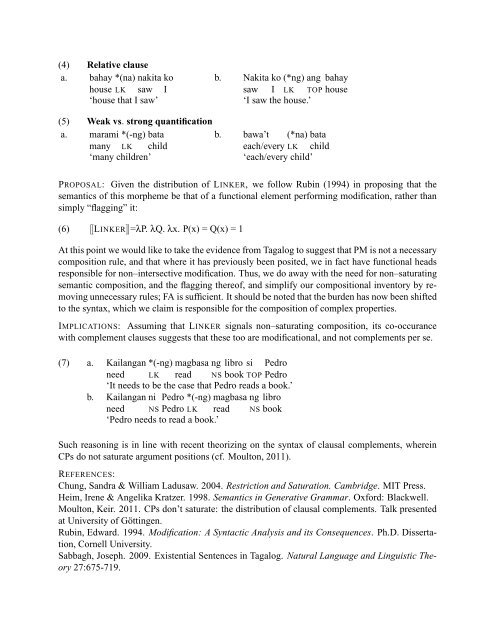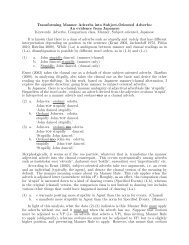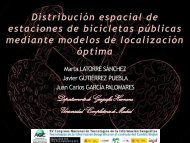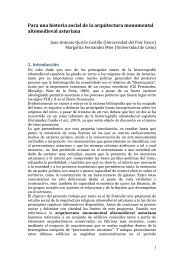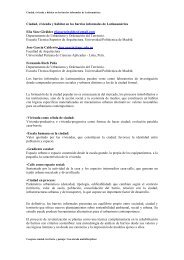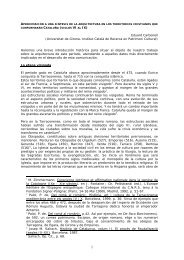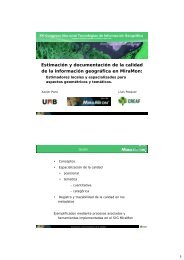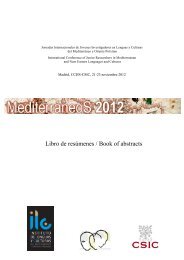Saturating Syntax: Linkers and Modification in Tagalog
Saturating Syntax: Linkers and Modification in Tagalog
Saturating Syntax: Linkers and Modification in Tagalog
Create successful ePaper yourself
Turn your PDF publications into a flip-book with our unique Google optimized e-Paper software.
(4) Relative clause<br />
a. bahay *(na) nakita ko<br />
house LK saw I<br />
‘house that I saw’<br />
b. Nakita ko (*ng) ang bahay<br />
saw I LK TOP house<br />
‘I saw the house.’<br />
(5) Weak vs. strong quantification<br />
a. marami *(-ng) bata<br />
b. bawa’t (*na) bata<br />
many LK child<br />
each/every LK child<br />
‘many children’<br />
‘each/every child’<br />
PROPOSAL: Given the distribution of LINKER, we follow Rub<strong>in</strong> (1994) <strong>in</strong> propos<strong>in</strong>g that the<br />
semantics of this morpheme be that of a functional element perform<strong>in</strong>g modification, rather than<br />
simply “flagg<strong>in</strong>g” it:<br />
(6) [[LINKER]]=λP. λQ. λx. P(x) = Q(x) = 1<br />
At this po<strong>in</strong>t we would like to take the evidence from <strong>Tagalog</strong> to suggest that PM is not a necessary<br />
composition rule, <strong>and</strong> that where it has previously been posited, we <strong>in</strong> fact have functional heads<br />
responsible for non–<strong>in</strong>tersective modification. Thus, we do away with the need for non–saturat<strong>in</strong>g<br />
semantic composition, <strong>and</strong> the flagg<strong>in</strong>g thereof, <strong>and</strong> simplify our compositional <strong>in</strong>ventory by remov<strong>in</strong>g<br />
unnecessary rules; FA is sufficient. It should be noted that the burden has now been shifted<br />
to the syntax, which we claim is responsible for the composition of complex properties.<br />
IMPLICATIONS: Assum<strong>in</strong>g that LINKER signals non–saturat<strong>in</strong>g composition, its co-occurance<br />
with complement clauses suggests that these too are modificational, <strong>and</strong> not complements per se.<br />
(7) a. Kailangan *(-ng) magbasa ng libro si Pedro<br />
need LK read NS book TOP Pedro<br />
‘It needs to be the case that Pedro reads a book.’<br />
b. Kailangan ni Pedro *(-ng) magbasa ng libro<br />
need NS Pedro LK read NS book<br />
‘Pedro needs to read a book.’<br />
Such reason<strong>in</strong>g is <strong>in</strong> l<strong>in</strong>e with recent theoriz<strong>in</strong>g on the syntax of clausal complements, where<strong>in</strong><br />
CPs do not saturate argument positions (cf. Moulton, 2011).<br />
REFERENCES:<br />
Chung, S<strong>and</strong>ra & William Ladusaw. 2004. Restriction <strong>and</strong> Saturation. Cambridge. MIT Press.<br />
Heim, Irene & Angelika Kratzer. 1998. Semantics <strong>in</strong> Generative Grammar. Oxford: Blackwell.<br />
Moulton, Keir. 2011. CPs don’t saturate: the distribution of clausal complements. Talk presented<br />
at University of Gött<strong>in</strong>gen.<br />
Rub<strong>in</strong>, Edward. 1994. <strong>Modification</strong>: A Syntactic Analysis <strong>and</strong> its Consequences. Ph.D. Dissertation,<br />
Cornell University.<br />
Sabbagh, Joseph. 2009. Existential Sentences <strong>in</strong> <strong>Tagalog</strong>. Natural Language <strong>and</strong> L<strong>in</strong>guistic Theory<br />
27:675-719.


